I've got this code:
let p1 = new Promise(function (resolve, reject) {
setTimeout(function () {
resolve({dogs: ['Fido', 'Spot']});
}, 2000);
});
p1.then(function (val) {
console.log('first then');
console.dir(val);
return _.extend(val, {cats: ['Fluffy', 'Whiskers']});
}).then(function (val) {
console.log('second then');
console.dir(val);
});
The unexpected console output shows:
I don't understand how cats could possibly be part of the value before it's actually appended into the object. The results printed in the second then make sense to me though. Am I missing something?
